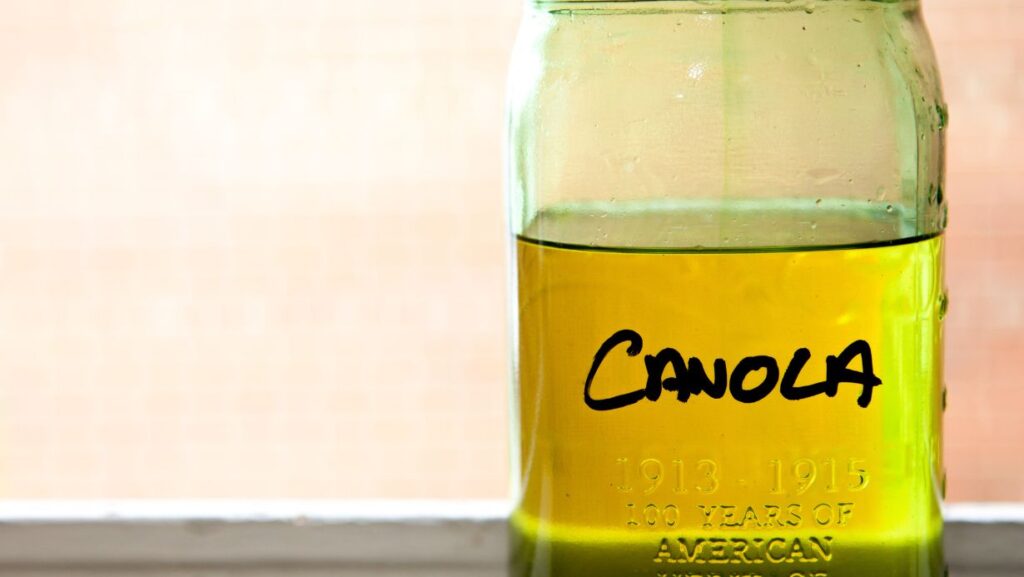
Chainsaw oil seems to be one of those things that sit in our shed for years and years without ever going bad or does it? I decided to contact STIHL to investigate.
Bar oil itself lasts indefinitely; it’s the containers holding the oil that determines the shelf life. Bar oil will stay in most bottles for between 3 and 7 years. The oil base determines the length of time; synthetic oils will last the longest, whereas mineral and plant-based oils have a shorter shelf life. Each oil base degrades the bottle at a different pace.
Below I’ll take a more in-depth look into the shelf life of bar oil. I’ll also list some alternatives to bar oil in case you find you’ve run out.
Bar Oil Shelf Life
First, I’ll give a primer on the need for bar oil. Chainsaws need oil always running along their bar and chain to prevent friction between these two parts. Chainsaws run at incredibly high speeds; without lubrication, the chain and bar can damage each other.
There is a little oil opening on your saw, near where your bar attaches. As you throttle your saw, oil spits out from this hole and coats your chain and bar. For this to work effectively, the oil needs to be sticky; this prevents the oil from sliding right off.
Now for bar oil shelf life. I contacted STIHL directly to ask about bar oil storage time. STIHL informed me bar oil itself doesn’t go bad over time. The issue is the biodegradability of the container you store the oil.
The biodegradability of an object is the ability of that object to break down. Therefore, the issue seems to be the containers breaking down, causing spillages and leaks.
STIHL gave me the approximate shelf life of three of their products. These products were:
- BioPlus with a shelf life of 4 years (plant-based)
- SynthPlus with a shelf life of 7 years (synthetic/mineral-based)
- ForestPlus with a shelf life of 3 years (mineral-based)
Each of the above oils has a different base. Each base affects how quickly the container starts to degrade.
I was surprised to see that plant-based oils did not last the longest. It turns out synthetic oils have additives that make them more stable and promote a longer shelf life. These additives affect the container, allowing it to last longer.
Mineral and plant-based oils are more natural—plant-based made from plants and mineral-based made from the ground’s oil. These two oils tend to be more unstable than synthetic oils due to the lack of additives and the refinement process. Overall these two oils tend to wear and degrade the container they sit in at an accelerated pace.

Motor Oil Shelf Life
One alternative to bar oil is motor oil. An unopened bottle will last three to five years, whereas you should use an open bottle within three months of opening.
Using motor oil is handy since most of us own cars and therefore have a good chance that motor oil is sitting somewhere in the garage. However, I don’t recommend motor oil as a long-term alternative, but it can help finish a job if you happen to run out of bar oil.
As motor oil is petroleum-based, motor oil is bad for the environment. As with all chainsaw oils, droplets will fly off your saw as you are cutting. If you happen to be using the chainsaw to prune your tree, the tree will potentially absorb some of the motor oil instead of removing it. Your tree-absorbing oil may act as a poison and cause damage to your tree, or in rare circumstances, may even kill it.
Using motor oil is certainly a possibility, but should be used with caution.

Vegetable Oil Shelf Life
Vegetable oil, unopened, has a shelf life of two years and, once opened, can last up to one year.
Vegetable oil can be an excellent alternative to bar oil. It is cheap, environmentally friendly and readily available (either already in your home or at your local supermarket).
Vegetable oils are naturally very high in lubricity. They have a high flash point, meaning they will not burn quickly (mainly when used in a chainsaw). One downside is how easily vegetable oil flows compared to traditional bar oil.
Even though we want a free-flowing substance to keep the saw lubricated, this can cause your saw to leak oil when it isn’t running. If you choose to use vegetable oil long-term, you will need to account for this leakage when not using your chainsaw, or if you are storing it for a long time, it is best to empty the oil tank.

Canola Oil Shelf Life
Unopened, Canola oil has a shelf life of two years, but will still be okay one year after opening.
While having similar properties to vegetable oil, Canola oil is a better alternative than vegetable oil. Canola oil is again, cheap, environmentally friendly and readily available. However, Canola oil is also thinner than its counterpart, so will flow even more freely when using your chainsaw.
It also pours a lot better in lower temperatures than vegetable oil, which is an excellent alternative in the Winter months.
In saying that, flowing too quickly will again cause your chainsaw to leak when idle and when storing it long-term, so keep that in mind.
Interestingly, Canola oil is undergoing testing throughout Europe as a bar oil alternative. Some countries are banning petroleum-based oils to protect the environment; this has led to Canola oil being considered a legitimate long-term alternative oil. The testing is promising, showing Canola oil is a great long-term alternative that won’t damage saws.

Drained Hydraulic Fluid
Unopened hydraulic fluid will last five years. Drained and therefore used oil should have maximum use of six months.
If you have machinery around with hydraulic pumps, you should have some hydraulic fluid sitting around. Hydraulic fluid is another alternative to bar oil, though it is not a standard fluid to have around the shed. Hydraulic fluid is similar to motor oil, bad for the environment and shouldn’t be a long-term alternative.
Another negative of hydraulic oil is it tends to dry up more quicker than regular bar oil. Drying up faster means you will need to keep an eye on your fluid levels by regularly checking. If you do not, the chain may become dry, and friction will damage your chainsaw.
Table
| Oil | Shelf life unopened | Shelf life opened |
| STIHL BioPlus | 4 years | 4 years |
| STIHL SynthPlus | 7 years | 7 years |
| STIHL ForestPlus | 3 years | 3 years |
| Motor oil | 5 years | 3 months |
| Vegetable oil | 2 years | 1 year |
| Canola oil | 2 years | 1 year |
| Drained hydraulic oil | 5 years | 6 months |
So if you run out of bar oil during a job or you find your oil is no longer usable, there are a few somewhat common alternatives you can use instead. As mentioned, I do not recommend using these alternatives as a long-term solution (Canola oil being the exception).
If you happen to run out of bar oil and do not have access to any of these alternatives, do not continue using your saw until you can get oil into it.
Note: USING A CHAINSAW WITHOUT ANY OIL CAN CAUSE SERIOUS DAMAGE TO YOUR SAW.
